Yard Act: between dreams and reality
The Leeds band are back with a new sound for their second album, 'Where’s My Utopia?' Here, they discuss the record’s more personal focus, and how the fantasy of making it big measures up to living through it.
By Nick Reilly
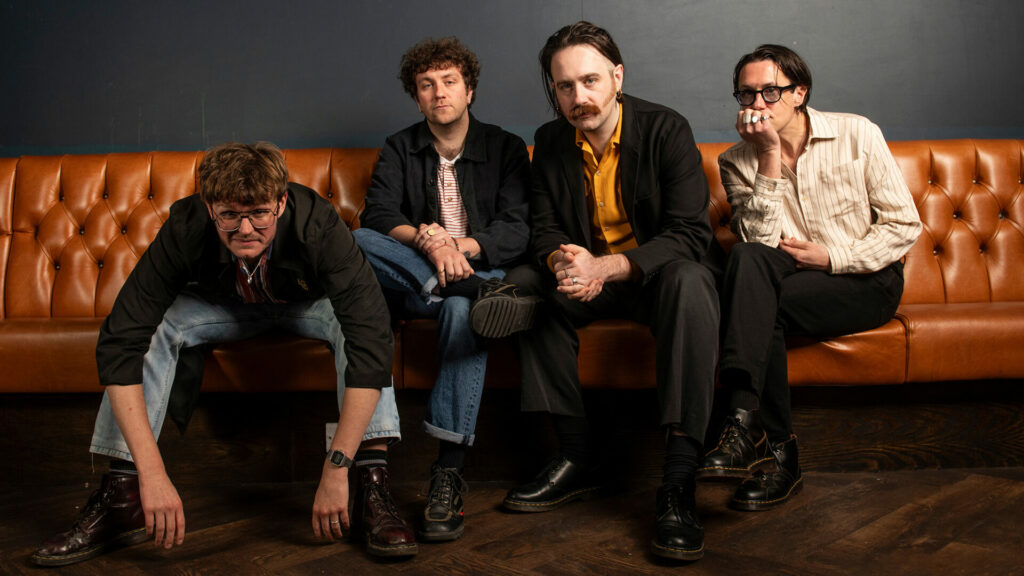
Since releasing their debut album The Overload in January 2022, Yard Act have secured a list of achievements that any misty-eyed band striving for greatness in their rehearsal rooms would die for. A reworking of a track with famous fan Elton John? Tick! A five-night sold-out homecoming in their native Leeds? Tick! Being, er, upstaged by a rhino? Again, it’s a tick.
To add a bit of context on the last point, in November, frontman James Smith found himself standing on a stage in Meanwood, Leeds, joined by the mascot of rugby side Leeds Rhinos, to turn on the Christmas lights in front of a crowd of bemused locals — which feels like a roundabout way of saying that Yard Act are something of a big deal round those parts.
It’s all testament to how The Overload became an album that pricked up the ears of not just Yorkshire, but the world, cementing Yard Act’s status as one of the most promising bands around. As Rolling Stone UK’s five-star review of the record explained, the band were the latest in a strong line-up of British and Irish bands to spearhead a post-punk revival — but what separated Yard Act from the pack was their ability to indulge in the strange and surreal. Through Smith’s lyrics, we were presented with characters like the unscrupulous landlord Graham, who helped paint an image of a Britain where altruism and compassion were in seemingly short supply.
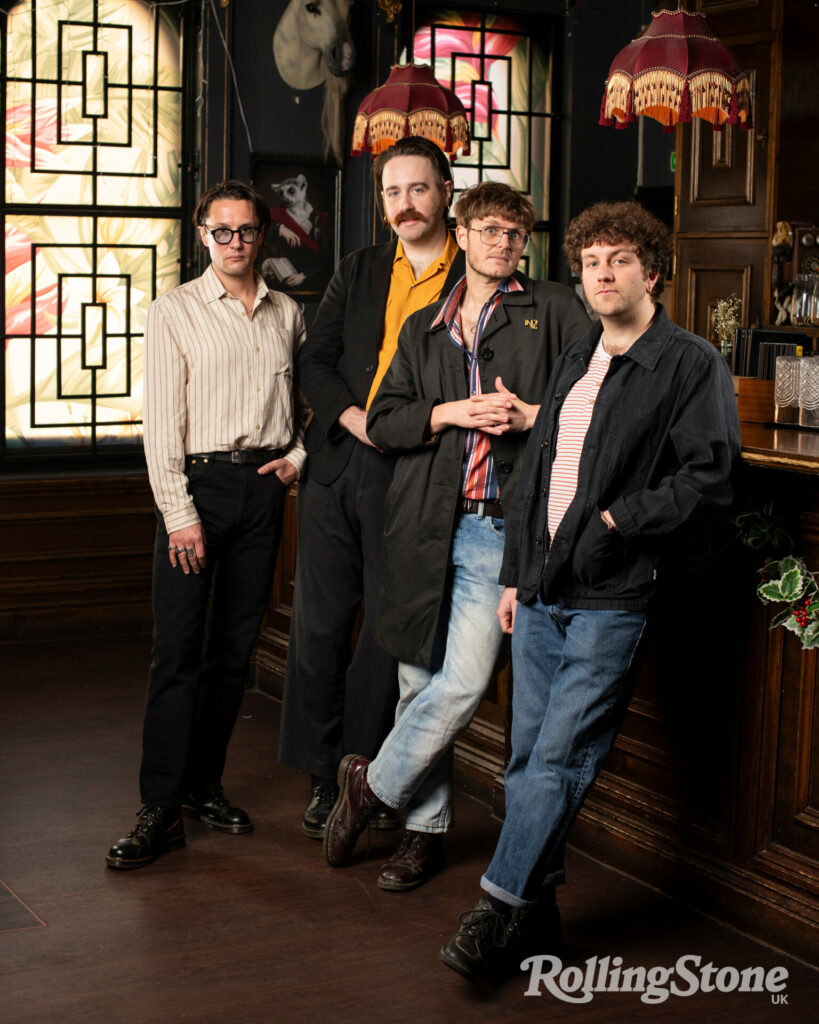
But on Yard Act’s second album, Where’s My Utopia?, band leader Smith turns the gaze on himself to offer a powerfully honest reflection on life at the top and the moments when long-strived-for success isn’t all it’s cracked up to be.
On album track ‘Petroleum’, which zips along with a hip-hop groove, Smith reflects on the real-life moment when burn-out from an intense tour schedule led him to dramatically turn on the crowd at a show in Bognor Regis, berating them for what he perceived as a lack of reaction.
“It was the first show back this year, and we’d had such an intense year, and it really felt like we’d put in the hard work. But we got there for our first gig of the year, and nothing had changed,” he recalls.
“There were small things like there being no non-alcoholic beer at a time when I’d been trying to give up drinking. There was only junk food, and I just felt depressed because it felt like we were about to do the same year that I’ve vowed never to do again because it was too much for me. I thought two weeks back would clear my burn-out, but it just hit me hard again. Then we went on stage, and the sound was shit, the lights were in my face, and it was just one of those gigs where everything was going wrong. It just went south, and I told the crowd I was bored on stage, which didn’t go down too well.”
After a backstage bust-up with bassist Ryan Needham, Smith was quickly able to re-evaluate “what was at stake” for the group’s future.
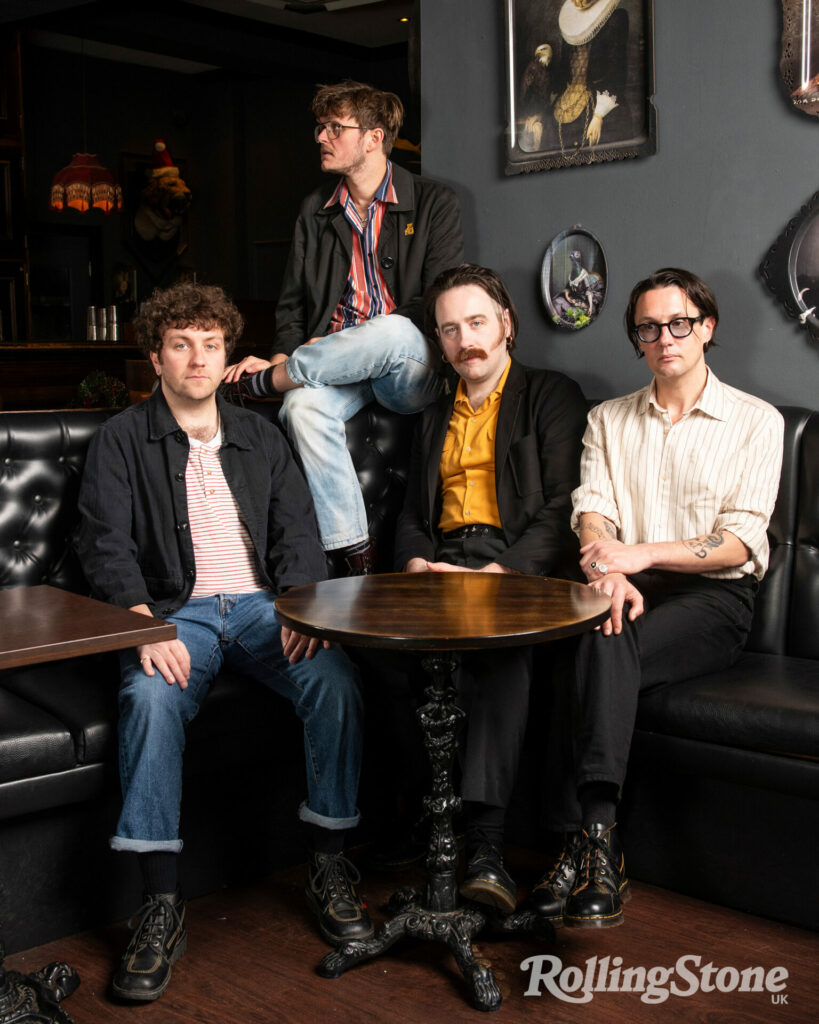
“Since then, I’ve never put anything less than my soul into every night. That was the amazing thing about that night, and I’m so glad that Ryan called me out because since then, it’s been sacred to me. I owe it to everyone who’s come in that room, plugged in the cables and pushed the faders up. The people who work the doors and the people that put our posters up. That’s a magic moment, and you can’t take it for granted. I’ve managed to see the importance of it in a way that I lost track of before because of how intense the year before was.”
But at the same time, Smith sees it as reflective of a wider problem.
“I think there’s some validity in saying that the commercialism of music has diminished the honesty and the art form, and it’s created something where people now have a list of demands they expect because they pay £20 or something to go and watch you.”
Now, it seems like the band are in a far better place. Where’s My Utopia is released in March and sees the band taking a step up. With Gorillaz producer Remi Kabaka Jr onboard, here’s an album that bounds along with a floor-filling, funk-led groove, while also maintaining the honesty and insight that made the world prick up their ears and listen to Yard Act.
James, the last time we spoke, you were saying that this album sees Yard Act moving away from post-punk. It’s delivered on that front — it’s got much more of a groove than the first one.
JAMES SMITH: Yeah, and it feels like a jumping-off point for future explorations as well. I think the most important thing about it is that it was really crafted as an album, and it flows as one continuous piece. The first one obviously has a narrative, but the sequencing here really helps the story to unfold.
Did Remy Kabaka Jr help with that? He’s produced Gorillaz before, so is very much in that world of dancefloor fillers.
RYAN NEEDHAM: My lasting memory of him is how he helped ‘The Trench Coat Museum’, our comeback track. He really transformed the second half of that song, and his impact wasn’t always as marked on some of the songs, but he really helped us find something there.
SMITH: He gave us the confidence to trust ourselves. Our confidence exploded and that came from an ability to bring this sheer, unfiltered love of music, the way he talks about music and his love for it. He’s inspiring to be around, and there were no boundaries with the way he works. He just lets you lean into it, and his references feel like a vast encyclopaedia.
SAM SHJIPSTONE: I feel like he’s the Terminator and he’s been sent back in time, the amount that man knows!
SMITH: That’s not stopped either. I speak to him several times a week, and it’s just pictures of records or download that we send to each other. And it’s just all dead good stuff!
But at the same time, this feels like quite an introverted and personal record, James. If the first album was defined by characters like Graham the Landlord, it feels like you’re the main character on this one.
SMITH: I suppose that’s an obvious trick to just go [in] the opposite direction, but I have thought about this, and I think what it boils down to is I feel less comfortable talking about that stuff. I think my outlook has changed, and I’m a lot less cynical, and that judgement of other people is something I’m actively trying to do less. I do feel fine with everything I said and holding people to account, but I don’t think I’d write a song like that again, and it’s fine. I just feel less confident that people are wrong and I’m right.
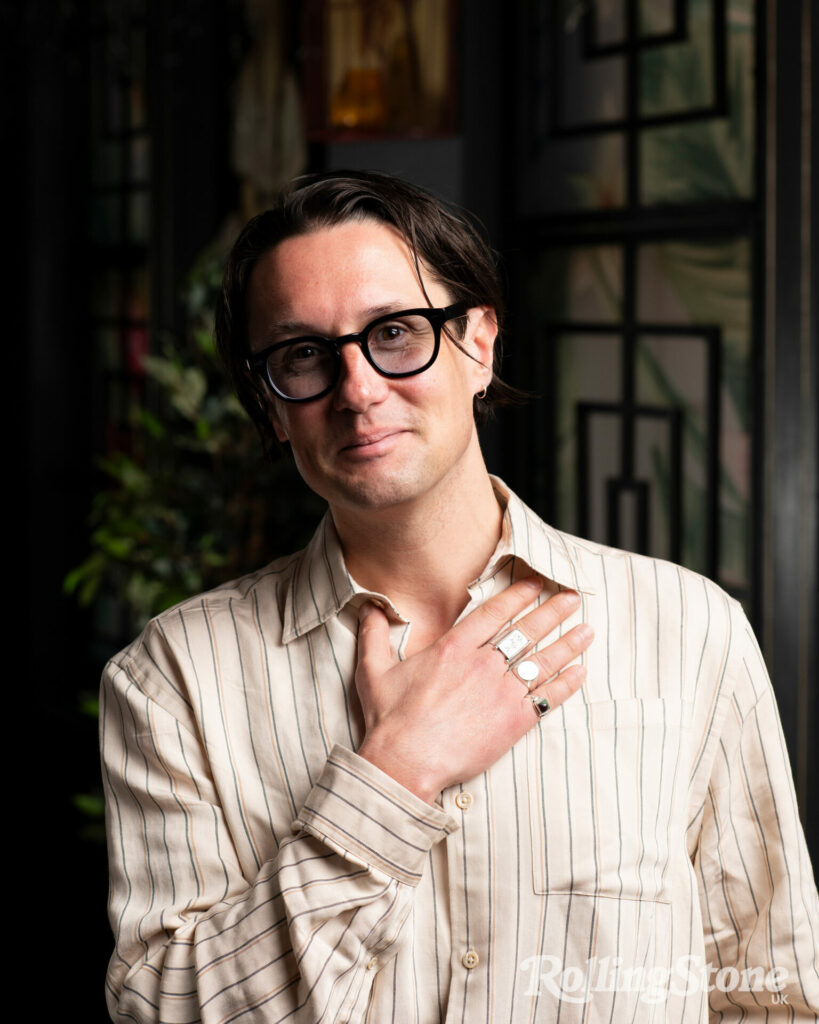
It’s quite confessional and biographical at points. On ‘Down by the Stream’, you’re looking back on your childhood and seeking forgiveness from a lad you picked on many years ago.
SMITH: I also think there’s some embellishment in there. There’s truth in everything, and I think that ambiguity has been lost in recent years, probably because of the internet and how everyone has become microscopic, and we’re able to take a look into artist’s lives. David Bowie was always brilliant at holding something back, and I do think in terms of what’s totally true and what’s fiction on the album, I’m gonna let the listeners decide.
But I did think it was important that if I was gonna write from the heart and represent myself as a very sort of sorry-looking man who was struggling in a band and missing his child, I wanted to flesh out that character and show there’s grey areas in everyone and people are complex characters.
Does that ambiguity come from wanting to hold something back maybe?
SMITH: I mean you do have to live your public life alongside your private life in this job and that to an extent is a part of it. Since this took off, I’ve had to learn how to be two people. One is the outgoing, public face of it, and another is the private, and it’s funny how the private side is getting smaller and smaller.
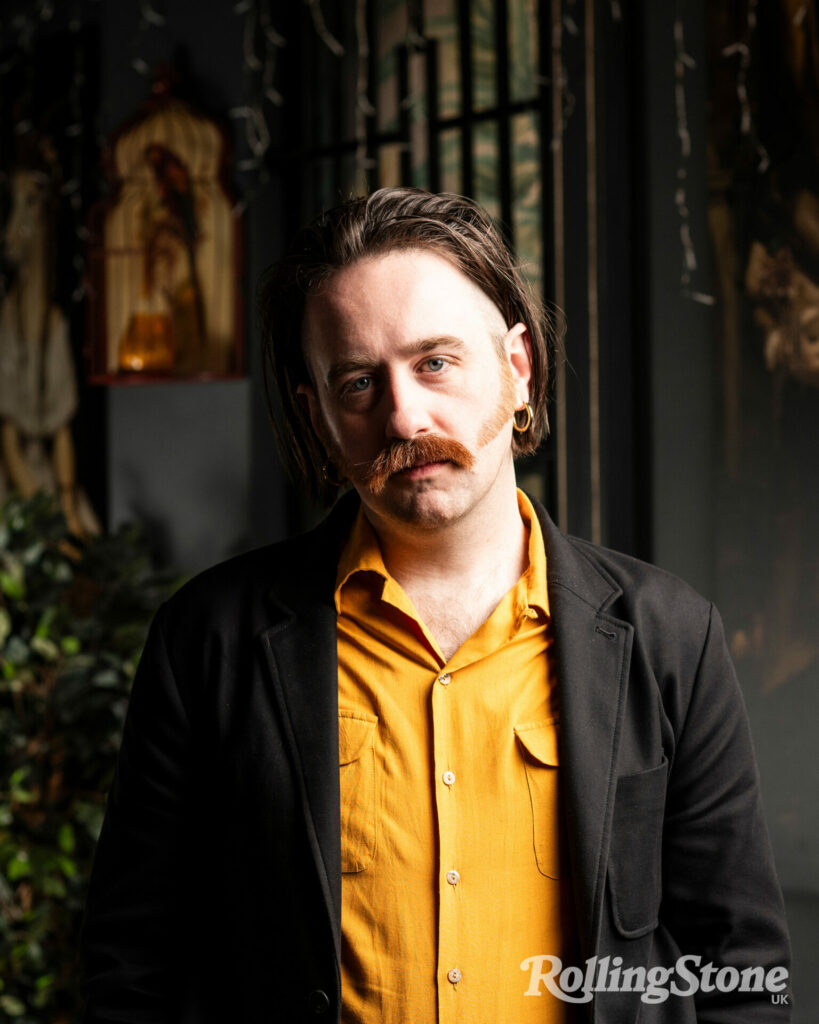
Are there any specific instances where that’s proved hard?
NEEDHAM: There was the festival…
SMITH: Oh yeah, I was literally changing my son’s nappy at a festival, and a bloke came up to me and asked for a photo. I was happy to do that, but it was a bit like, er, give me a second. I did do the photo. That’s weird, innit? I think now maybe I wouldn’t, but I just think there’s never the right time to, like, dress somebody down.
There’s honesty too in ‘Petroleum’, where you’re talking about the bust-up that followed after James berated the audience at Butlins. How have you managed to change touring to avoid that again?
SMITH: Well, this industry is notorious for temptation, but I’ve stopped drinking and that’s really helped.
NEEDHAM: I feel like there’s a lot more discourse and openness about not drinking. It’s got rapidly better, and people are talking about it and making changes.
SMITH: But I definitely couldn’t have done it without non-alcoholic Guinness. But I even had eight of those a night to start when I stopped drinking, which shows how much of a connection with it I had when performing. Now I’ve just gone for fizzy water, I’m full monk! I’m straight edge, and I don’t drink those either.
Look, a bit more money came through after that show and that really helped with another level of comfort — getting out of the van and onto a bus! Having the money to tour properly, it’s a gamechanger and not many bands get to do that.
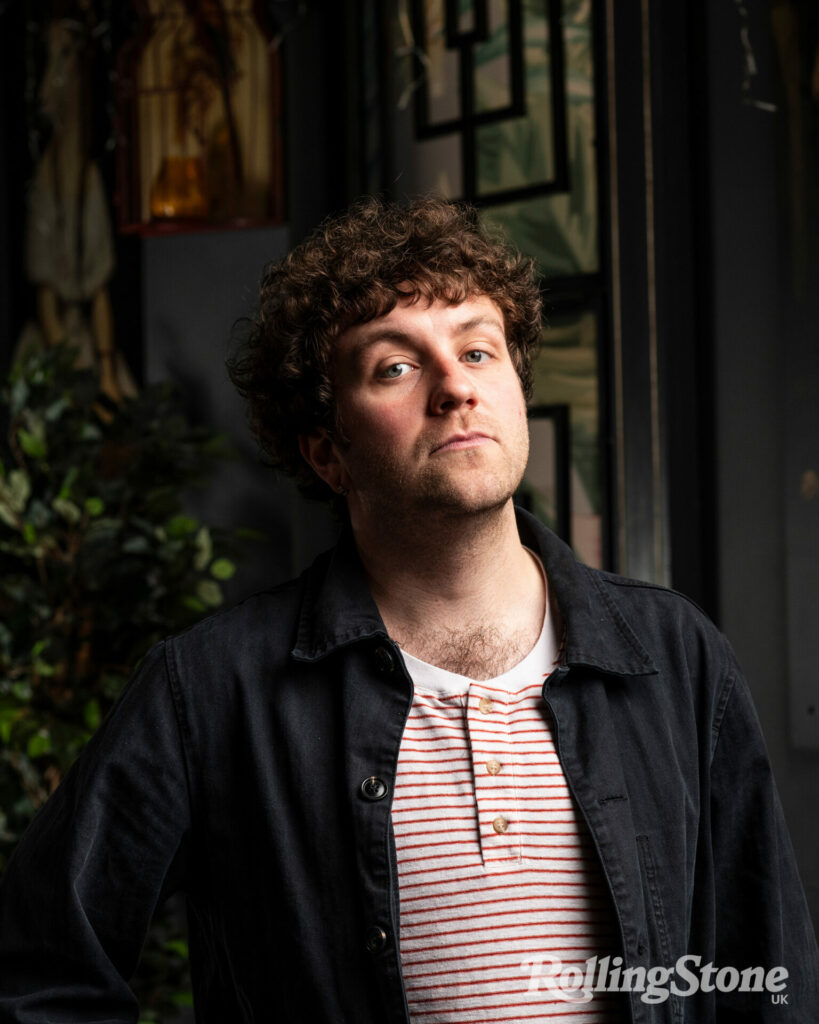
This album grapples with you as a father, too, James. What is it like being in a touring band when he’s at home?
SMITH: I still have this internalised guilt that I’m working through processing. I’m not content just being a father and sometimes I wish I was. There is this other part of me that’s obsessed with creating music and being successful, whatever success counts for. I still wonder why this is so important to me. But it does pay the bills, so that helps me justify it when I’m away. But I also know that when I’m home I’m home, and when he grows up, he gets to see what I’ve done. I also know that we’re solid and that he loves me when I go away and that my wife loves me too. It’s also not the only job where people go away!
But it does, as an album, feel like something of a love letter to him too. Especially on ‘Blackpool Illuminations’, where you’re looking at your own childhood.
SMITH: Course it is. He’s the most important thing in my life, and I’m doing a lot of it for him. I’m doing it for myself, of course, but this is an investment in his future as well.
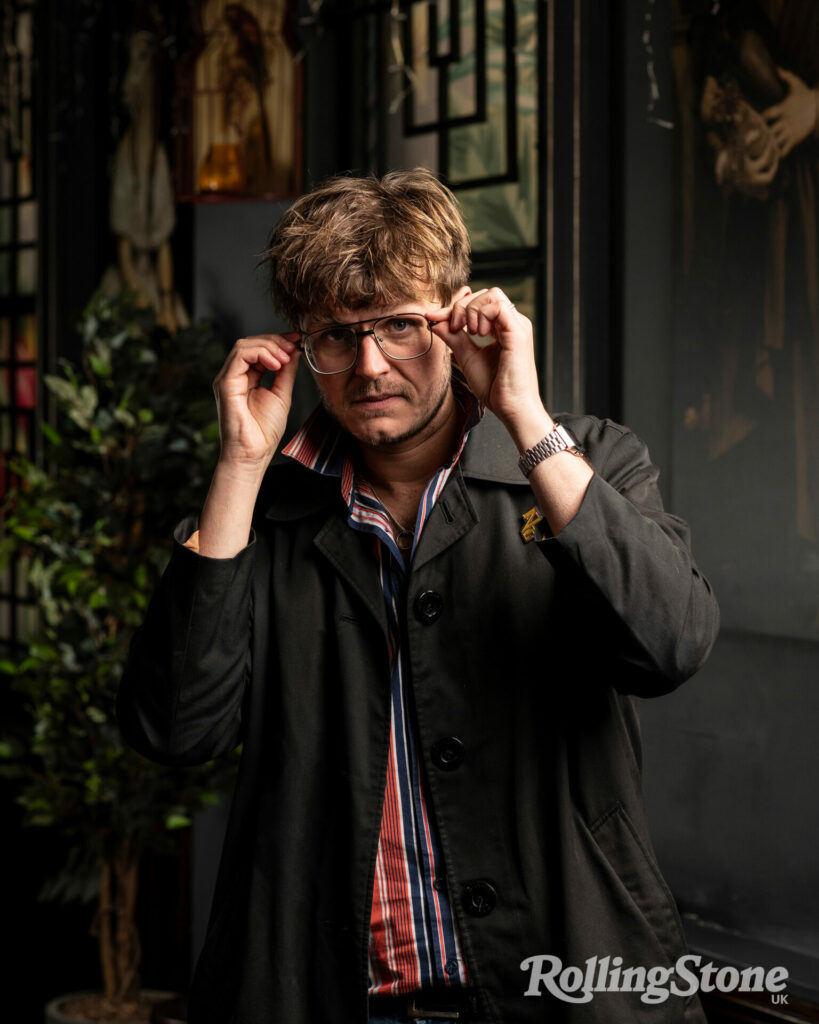
That title of Where’s My Utopia?, what does that mean for you?
NEEDHAM: When I hear it, from my perspective, it reflects this world we’re living in where people want the world to be the way they want, and they want [it] to happen now. It’s a genuine stress and strain that everyone is going through because they want it now. It’s this instant gratification, and the problems are so deep that we can’t say “This is wrong, and this is what I want to happen now!” But I feel like the internet has made everyone think they can have what they want overnight. But as we know, change is hard fought and hard won. The first album looked outwardly at the world, but I feel like I’ve got a lot better at coping by looking after myself first. And that’s not selfish, working on yourself internally. I’ve done a lot of that, and it means I’m not blaming other people for my misery!
And, overall, it’s got the feel of an album that is dying to be played live, in my opinion.
SMITH: I think it will open us up to some new people, new opportunities and maybe even close [off] the people who are disappointed it isn’t really post-punk anymore. I think the best part of it is that we’ve not backed ourselves into a corner. Everything going forward is completely open now and, yeah, it’s a party record. When we play it live, it’s going to elevate the album one stuff too, and we’ve really got to raise our game there. It’s exciting!
Taken from Issue 15 of Rolling Stone UK. You can buy it here.
